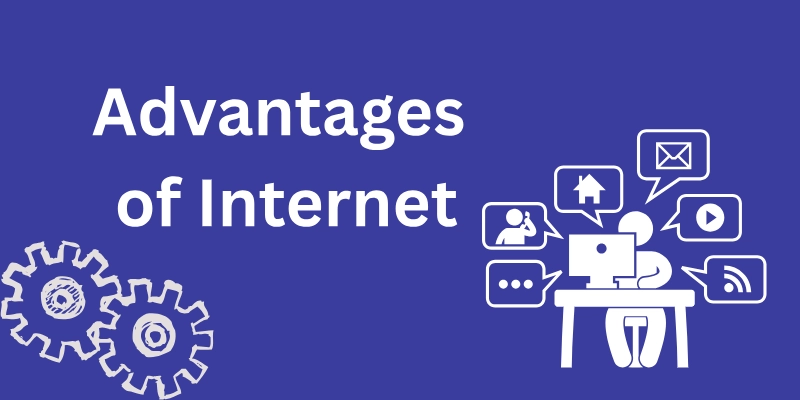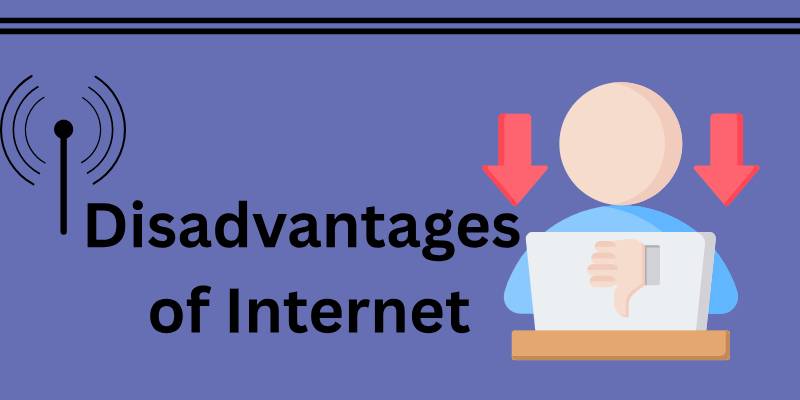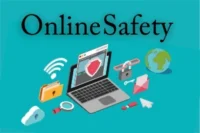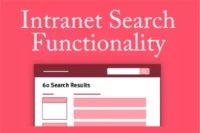Advantages and Disadvantages of Internet: Complete Guide
Published: 28 Aug 2025
More than 5 billion people worldwide use the Internet every day, making it one of the most powerful tools in human history. From instant access to knowledge to seamless global communication, it has transformed nearly every aspect of our lives. Yet, many users feel overwhelmed spending endless hours online, struggling with privacy risks, or even facing health issues due to overuse. This is why it’s essential to understand the advantages and disadvantages of the Internet.
In this article, we’ll explore both sides of the digital revolution and share tips on how to use it wisely.
Advantages of Internet
The Internet is a powerful tool that has transformed how we live and work. Below are the key benefits of Internet:
- Easy Access to Information
- Global Communication and Connectivity
- Online Banking and E-Commerce
- Entertainment and Leisure
- Remote Work and Productivity
- Innovation and Economic Growth

Easy Access to Information
One of the biggest advantages of the Internet is its ability to provide information anytime, anywhere. Whether you are a student, a professional, or just a curious learner, the Internet makes knowledge more accessible than ever before. It has truly changed the way we search, learn, and grow.
- Provides instant access to knowledge, research, and educational content.
- Online courses, digital libraries, and tutorials make learning more accessible.
- Students and professionals can use the Internet to improve skills and stay updated.
Global Communication and Connectivity
The Internet has completely transformed the way people interact and stay in touch. From personal conversations to business meetings, it enables instant communication across the globe. It has made the world a smaller, more connected place.
- Email, messaging apps, and video calls allow real-time communication.
- Social media platforms connect people across borders.
- Builds communities and fosters global cultural exchange.
Online Banking and E-Commerce
One of the most practical benefits of the Internet is the ease it brings to finance and shopping. Tasks that once took hours can now be done in minutes, from paying bills to purchasing products online. It has also opened countless opportunities for businesses and freelancers.
- Secure online transactions, bill payments, and money transfers.
- Online shopping platforms make purchasing more convenient.
- Freelancers and businesses generate income through digital marketplaces.
Entertainment and Leisure
The Internet has become a hub of entertainment, offering endless options for relaxation and enjoyment. From movies and music to online games, it provides instant fun and helps people explore their creativity.
- Movies, music, games, and streaming platforms provide 24/7 entertainment.
- Platforms like YouTube and TikTok encourage creativity and talent sharing.
Remote Work and Productivity
Work culture has evolved with the help of the Internet, making flexibility and efficiency the new norm. Employees and organizations can now collaborate seamlessly without being limited by physical locations.
- Cloud tools and collaboration software make work flexible.
- Employees can work from home or anywhere in the world.
- Saves time, reduces travel costs, and improves efficiency.
Innovation and Economic Growth
The Internet plays a major role in driving global progress and economic development. It has created new industries, supported startups, and enabled innovation in every field.
- Supports digital marketing, e-commerce, IoT, and emerging industries.
- Encourages startups and entrepreneurs to expand globally.
Disadvantages of Internet
While the Internet has transformed our lives, it also presents serious challenges. Let’s look at the drawbacks of Internet:
- Privacy and Security Issues
- Spread of Misinformation
- Internet Addiction and Health Problems
- Distraction and Reduced Productivity
- Social Isolation
- Digital Divide
- Environmental Concerns

Privacy and Security Issues
The Internet offers countless benefits, but it also exposes users to serious risks. Cybercriminals target personal and financial information, making privacy one of the biggest concerns of the digital age. Without proper protection, anyone can fall victim to online fraud or identity theft.
- Cybercrimes such as hacking, phishing, and identity theft are common.
- Personal information can be misused if not properly protected.
- Weak passwords and unsafe browsing increase risks.
- Businesses face major threats from data breaches and leaks.
Spread of Misinformation
While the Internet is a hub of knowledge, it also spreads misleading and false information at a rapid pace. Fake news, clickbait, and rumors can confuse users and create distrust in reliable sources. The overload of data makes it harder to separate facts from fiction.
- Fake news and misleading content spread rapidly.
- Overload of information makes it difficult to find trustworthy sources.
- Social media amplifies unverified claims.
- Misinformation can affect opinions, health, and decision-making.
Internet Addiction and Health Problems
Excessive use of the Internet has become a growing issue in modern life. From endless scrolling to online gaming, people often spend more time online than intended. This not only impacts mental health but also causes physical problems related to posture, eyes, and sleep.
- Excessive use leads to addiction and reduced attention span.
- Prolonged screen time causes eye strain and fatigue.
- Sedentary lifestyle increases health risks like obesity.
- Sleep disturbances are common due to late-night browsing.
Distraction and Reduced Productivity
The Internet is full of distractions, from social media feeds to video platforms. While it can be useful for work, it often becomes a time-waster, pulling students and employees away from important tasks. This reduces focus and overall productivity.
- Social media, online games, and endless browsing waste valuable time.
- Students may lose concentration during studies.
- Employees get distracted from work responsibilities.
- Notifications and constant updates break focus.
Social Isolation
Although the Internet connects us virtually, it can sometimes disconnect us in real life. Spending too much time online reduces face-to-face communication, which weakens relationships. Over time, this can lead to loneliness and even emotional struggles.
- Too much online interaction reduces in-person communication.
- May lead to loneliness, anxiety, or depression.
- Weakens real-life social bonds and friendships.
- Excessive screen time affects family interactions.
Digital Divide
Not everyone has equal access to the Internet, creating a digital gap between societies. People in rural or underdeveloped areas often face limited connectivity, leaving them behind in education, business, and career opportunities.
- Not everyone has equal access to high-speed Internet.
- Creates inequality in education and professional growth.
- Businesses in remote areas face challenges in digital expansion.
- Widening gap between developed and developing communities.
Environmental Concerns
The Internet may feel virtual, but it has a very real environmental impact. Massive data centers, continuous streaming, and cloud storage consume huge amounts of electricity. This energy demand contributes to carbon emissions and puts pressure on the environment.
- Data centers and streaming services consume vast amounts of energy.
- High electricity use increases carbon emissions.
- Growing demand for online services strains natural resources.
- Sustainable digital practices are still limited.
Comparative Summary: Pros and Cons of Internet
| Advantages of Internet | Disadvantages of Internet |
| Access to unlimited information | Privacy risks and cybercrime |
| Global communication and networking | Fake news and misinformation |
| Online shopping and banking | Internet addiction and health issues |
| Entertainment and creativity | Time-wasting distractions |
| Remote work and productivity | Social isolation and relationship gaps |
| Economic growth and innovation | Digital divide and inequality |
How to Use the Internet Wisely
To enjoy the benefits of Internet while minimizing risks:
- Practice digital literacy to verify information before trusting it.
- Use strong passwords and enable two-factor authentication.
- Limit screen time to prevent addiction and health issues.
- Balance online activities with offline hobbies and relationships.
Conclusion
The Internet is both a boon and a challenge. Advantages and Disadvantages of the Internet depend on how we use it. While it empowers us with knowledge, communication, and opportunities, it also demands responsibility to avoid risks like addiction, misinformation, and privacy loss.
👉 Final Recommendation: Embrace the positive and negative effects of Internet with balance. Use it as a tool for growth, not a distraction. The key is to stay informed, secure, and responsible in the digital world.
How do you think the Internet has impacted your daily life positively or negatively? Share your thoughts in the comments below.
FAQs About Advantages and Disadvantages of Internet
The following are key advantages and disadvantages of the Internet. They provide quick answers to help you better understand its impact on daily life.
The Internet offers easy access to information, global communication, online shopping, remote work opportunities, entertainment, and economic growth. It has transformed education, business, and social connections worldwide.
Some key drawbacks include privacy and security risks, spread of misinformation, internet addiction, health issues, distractions, social isolation, digital inequality, and environmental impact.
The Internet provides digital libraries, e-learning platforms, online courses, and tutorials. Students and professionals can access updated knowledge anytime, making learning more convenient and affordable.
Overuse of the Internet can cause eye strain, poor posture, headaches, lack of sleep, obesity due to sedentary lifestyle, and even mental health issues like anxiety or depression.
Yes, online shopping is generally safe if you use trusted websites, secure payment methods, strong passwords, and two-factor authentication. However, users should be cautious of scams and fake sites.
The Internet boosts productivity by enabling remote work, cloud collaboration, and easy communication. However, distractions like social media and endless browsing can reduce focus and efficiency.
The digital divide refers to the gap between people who have access to high-speed Internet and those who do not. This inequality limits education, career opportunities, and business growth for underdeveloped regions.
Use strong, unique passwords, enable two-factor authentication, avoid suspicious links, keep devices updated, and be cautious about sharing personal information online.
The Internet has made communication faster and more global. Emails, instant messaging, and video calls connect people instantly across borders, making the world more connected.
Set screen time limits, practice digital literacy, use security tools, balance online and offline activities, and focus on learning and productivity rather than wasting time online.

- Be Respectful
- Stay Relevant
- Stay Positive
- True Feedback
- Encourage Discussion
- Avoid Spamming
- No Fake News
- Don't Copy-Paste
- No Personal Attacks

- Be Respectful
- Stay Relevant
- Stay Positive
- True Feedback
- Encourage Discussion
- Avoid Spamming
- No Fake News
- Don't Copy-Paste
- No Personal Attacks





